SUMMARY
This is AI generated summarization, which may have errors. For context, always refer to the full article.
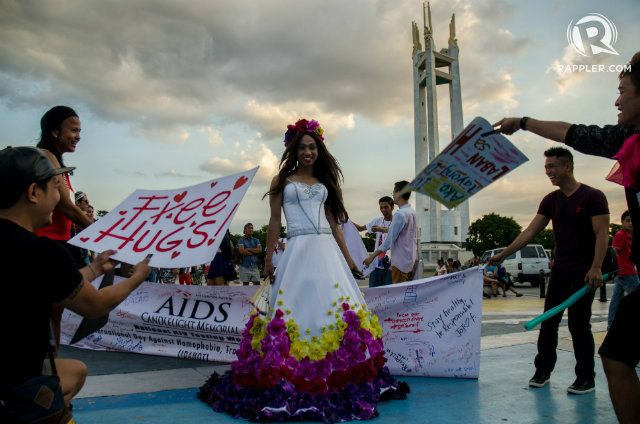
MANILA, Philippines — Why does the world commemorate May 17th?
For years, homosexuality has been seen as a disease, even by the World Health Organization (WHO).
This only changed when WHO officially removed homosexuality from its International Classification of Diseases on May 17, 1990. (READ: LGBT rights history)
This was only 25 years ago, imagine that.
The WHO’s decision helped enlighten the public on the fact that there is nothing wrong with being lesbian, gay, bisexual, or transgender (LGBT), in the same way that there is nothing wrong with being heterosexual.
Unfortunately, several Filipinos still think otherwise.
Since 2004, over 120 countries have been celebrating May 17 as IDAHO or the International Day Against Homophobia, Transphobia, and Biphobia.
The message has always been clear: LGBT rights are not special or additional rights, these are human rights.
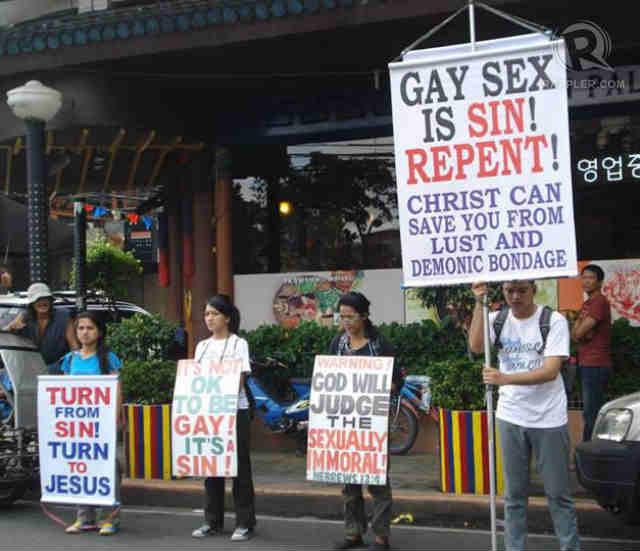
Despite the tireless efforts of advocates in raising awareness on the need to recognize, understand, and respect the diversity of human sexuality, many Filipinos continue to force their personal beliefs on others — usually in the name of god.
Although the world no longer views homosexuality as a disease or a mental disorder, it is still seen as taboo or sin in the Philippines.
Respect
For IDAHO, advocates gathered in the Quezon City Memorial Circle to amplify the call for a genuine “LGBT-friendly” Philippines.
“Acceptance, not tolerance,” is what LGBTs need, said Ging Cristobal of the International Gay and Lesbian Human Rights Commission during IDAHO celebrations organized by the Project Red Ribbon Care Management Foundation (TRR).
Acceptance means respecting the person, no ifs and buts. An example of tolerance would be parents telling their gay son: “We’re okay with you being gay, but not if you have a boyfriend” or “We’re okay with this, but don’t tell anybody else.”
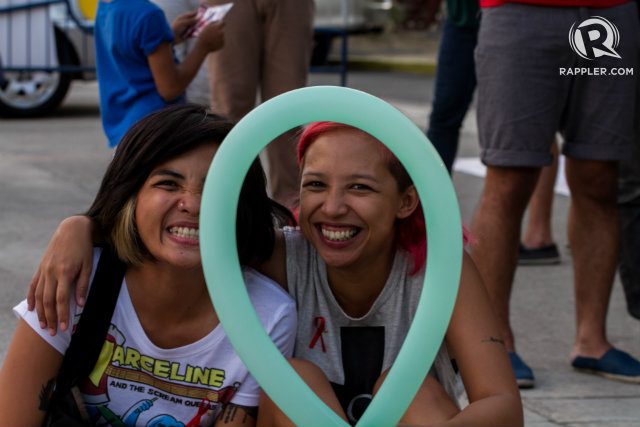
There is no shame with having LGBT relatives, what is really shameful is allowing discrimination and misinformation to run in the family. Parents have the obligation to teach children not to discriminate others based on sexual orientation and gender identity (SOGI).
Although many Filipino Catholics view LGBTs negatively, there are Filipinos of faith who believe that we should not express “bigotry and hatred” on things we do not personally understand.
“We have to realign our culture with what medicine and science have discovered a long time ago,” said the Philippine Network of Metropolitan Churches. “We cannot moralize everything,” they said in response to the stigma faced by LGBTs and people living with HIV/AIDS.
TRR Executive Director Red Macalalad also stressed that “homophobia has many faces.”
It manifests in families where children are kicked out for being gay, in workplaces where LGBT applicants or employees are treated unfairly, in schools where children cry or even die from bullying, in dark alleys where LGBTs are harassed, and in the legislature where the Anti-Discrimination Bill remains pending.
Although the Philippines does not have a national law on gender-based discrimination, there are local versions or ordinances of this law exercised in Quezon City, Angeles City, Antipolo City, Bacolod City, Candon City, Cebu City, Dagupan City, Davao City, Vigan City, Agusan del Norte, and Cavite.
Kapederasyon, a militant LGBT group, called for the passing of the bill. The group also reminded the public that slain transwoman Jennifer Laude is yet to receive justice.
Laude is believed to be just one of the many victims of gender-based violence or “hate crimes.” Since 1996, there have been 164 hate crimes in the Philippines. This only accounts for reported cases, several others suffer in silence — sometimes, in the hands of their own loved ones.
Meanwhile, the ASEAN SOGI Caucus challenged the Philippines to lead a good example for the rest of Southeast Asia where some countries have policies restricting gender expression.
“We must forge solidarity with other LGBT groups in the region,” the Caucus said, “Let’s remind the ASEAN of its human rights obligation to the LGBT.”
Get tested
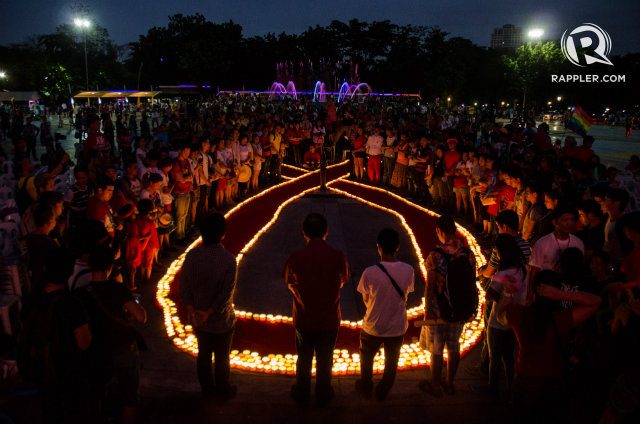
Aside from IDAHO, advocates also celebrated the International AIDS Candlelight Memorial, with the goal of educating the public.
“We need to demistify and destigmataize HIV/AIDS,” said Ico Rodulfo, TRR President. “People don’t need to be scared of HIV/AIDS testing.” (PODCAST: We need to talk about HIV)
In March 2014, around 667 new HIV cases were documented by the Department of Health. This has been the highest record since the country’s first case in 1984.
“Don’t just focus on men having sex with men (MSM), HIV is a public concern,” Rodulfo added.
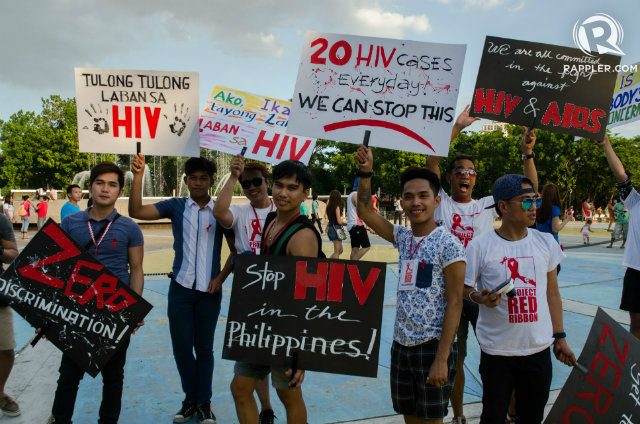
As HIV/AIDS cases continue to rise, advocates encourage Filipinos to get tested. Such services also include counseling and medication. Many health centers offer these for free.
To stop the spread of HIV, we must start the spread of information.
In June, advocates will once again gather for Pride March to be held in the City of Manila. – Rappler.com
Got stories to tell? Share your ideas and stories on LGBT rights, women, and development with move.ph@rappler.com. Speak up on #GenderIssues!
Add a comment
How does this make you feel?
There are no comments yet. Add your comment to start the conversation.